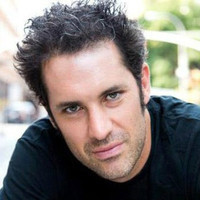Mona Chalabi is a writer and illustrator whose work has appeared in The New York Times, The New Yorker, and The Guardian, where she is the data editor. Her New York Times Magazine piece “9 Ways to Imagine Jeff Bezos’ Wealth” won this year’s Pulitzer Prize for Illustrated Reporting.
“I kind of think of protest as just saying what you believe. And sometimes, it’s considered protest because it’s outside of the institutions of power. So you’re saying, Hey, Palestinians deserve human rights, and that’s considered a form of protest, right? I want the work to change things and I think I’m quite unapologetic about that, and most journalists are like No no no no no, we’re just reporting the world, we’re just reporting things as we see it. There’s no desire for change. I think that is so messed up. This idea that your work has no impact in the world is incorrect. You can’t wash yourself of the consequences of the work, you have to be considering the consequences while you’re doing it.”


















